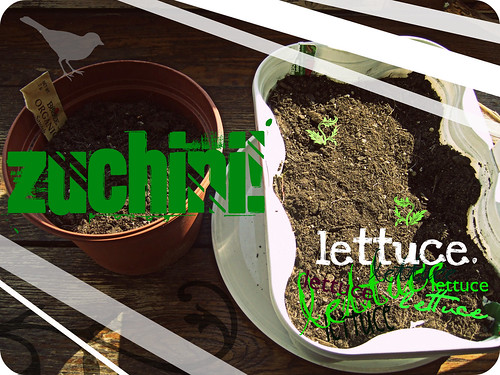
Lovely article by Bonnie Hulkower supporting the importance of school gardens for childhood development. This article refutes some contentious points made by a columnist in The Atlantic magazine who thinks that school gardens prohibit minority students from succeeding academically and offends Latino students by involving them in the denigrating labor of growing food (the horror!). In her article, Hulkower makes a good point in asking for some statistical evidence to support such claims. I'd hardly consider growing and cultivating food to be denigrating to my nature, but rather one of the most satisfying, lesson-filled, and amazing activities I've attempted. Why would that be different for a low-income student? Oh wait, I was one. At the most basic level, a school garden teaches urban students about the cyclical patterns of nature, and shows them the tangible vegetables of their labor. The success of a garden is the direct result of effort, reliability, and consistency, and the results are something you can hold and taste, more than just a number score or a letter on a piece of paper. Of course the garden should be integrated into the curriculum, but it is precisely complex systems like growing plants that allow for students to demonstrate analysis and synthesis -- to apply their knowledge across disciplines to solve problems that they haven't seen before, to deal with success and failure, to experience surprises and to be inventive.
I'd also like to mention that it was the farm kids of Pennsylvania who had the best work ethic of any other kids I had met growing up. The last time I checked, farming was a difficult, respectable, and honorable occupation in the U.S. A respect for the effort, patience, and responsibility of growing food is something we could all use more of, and you build respect for growing food through experience.



No comments:
Post a Comment